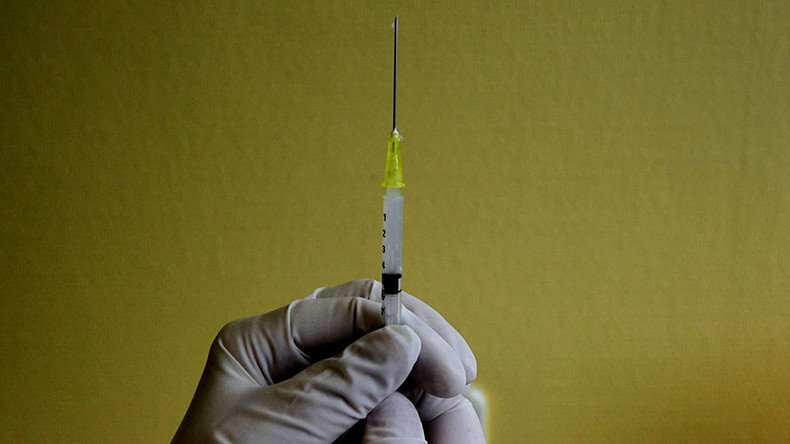Arkansas lethal injection drug likely from Pfizer subsidiary

Arkansas’ secrecy laws didn’t keep photos of a drug used in the state’s lethal injection protocol from offering some inadvertent transparency. A Pfizer subsidiary is now thought to be the provider, despite the company’s prior statements to the contrary.
The revelation came on Monday following an investigation by the Associated Press into redacted photos it had obtained from the Arkansas Department of Correction.
The label for vecuronium bromide, a paralytic drug used in lethal injection protocols, matched those sent to the National Institutes of Health by Hospira, a company that the global pharmaceutical corporation Pfizer bought last year. While AP obtained the purchase orders for the drug, the name of the third party that sold the drug to the Corrections Department was redacted in order to comply with the state’s secrecy laws.
APNewsBreak: Pfizer: Arkansas execution would 'misuse' drug https://t.co/si6R4yqJKh
— Arkansas Update (@ArkansasUpdate) July 25, 2016
In a split decision, the Arkansas State Supreme Court ruled last month that the state could execute eight death row inmates with its three-drug protocol, while upholding a state law that keeps information about lethal injection drugs confidential. The eight inmates are appealing that decision.
In March, Pfizer announced that it would not sell drugs for use in executions.
“Pfizer makes its products to enhance and save the lives of the patients we serve. Consistent with these values, Pfizer strongly objects to the use of its products as lethal injections for capital punishment,” a statement from the Pfizer website said.
“Pfizer will consistently monitor the distribution of these seven products, act upon findings that reveal noncompliance, and modify policies when necessary to remain consistent with our stated position against the improper use of our products in lethal injections,” the statement continued.
The company has joined over 20 other drug companies from the US and Europe that do not permit their drugs to be used for state executions.
After 11-year break, #Arkansas to resume executions with new lethal injection drugs https://t.co/MPq4hwQgFQpic.twitter.com/peptGfAonQ
— RT America (@RT_America) July 14, 2016
Pfizer spokeswoman Rachel Hooper said the company had restrictions in place to prevent the unauthorized use of its drugs, writing “We have implemented a comprehensive strategy and enhanced restricted distribution protocols for a select group of products to help combat their unauthorized use for capital punishment,” according to AP.
“Pfizer is currently communicating with states to remind them of our policy,” she added.
Hooper did not address whether the company was aware of the sale of the paralytic drug to Arkansas’ Department of Correction.
Despite the fact that the death penalty is legal in nearly two-thirds of US states, the number of executions has fallen dramatically since 1999, when 89 were carried out. Last year saw 28, and so far in 2016, there have been only 14 state sanctioned killings, according to the Death Penalty Information Center. Just seven states have executed prisoners since 2014.
BREAKING: Supreme Court upholds lethal injections http://t.co/itkwPy5mOKpic.twitter.com/G707gqHybb
— RT America (@RT_America) June 29, 2015













